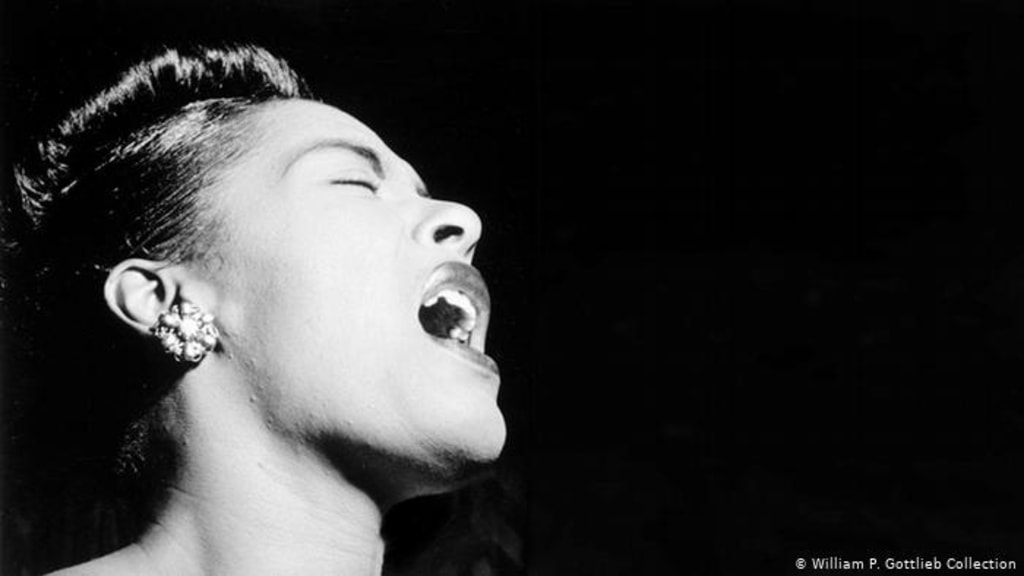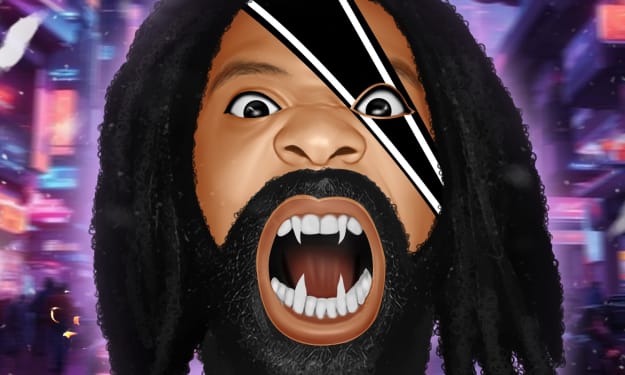
The first time I heard of Billie Holiday was embarrassingly watching a 90’s guilty pleasure movie. The rich white kid gets into his nice car, puts on the radio and asks the blonde in the seat beside him, ‘Do you like Billie Holiday?’. She replies, ‘I love him.’ I didn’t get the joke. It took me nearly ten years to realise what an insult this is and to realise that I'd been hearing her for years. 'I'll be seeing you' in one of my favourite movies, The Notebook, 'Blue Moon' in Grease and some of her music even featuring in episodes of The Vampire Diaries. Songs I knew the lyrics to and would hum for a few days after I heard them.
I first heard 'Easy Living' in the background of an Instagram story. I googled the lyrics instantly. Holiday’s phrasing melts over the music, the way a satin sheet would mould to an object, lifting and dipping in all the perfect places, intimate and individually untouchable, all at the same time. The lyrics bare the naked and unashamed truth of someone in love with no thoughts spared for any sceptics. While suffering at the hands of men who took advantage of her fame and fortune and lead her down destructive paths, her music croons of never giving up on love. Behind the lyrics and closed doors there were battles with abuse whether of drugs or from people. The raw emotion pours through the speaker and infects the hearts of anyone who will listen. It makes you want to be in love. It makes you fall in love with love. I played it on repeat for six days. It was the first piece of music that made me think, maybe this song could be why pretentious people insist that music always sounds better on vinyl. I ordered the vinyl. Pretentious people are right sometimes.
Unsurprisingly, I am not the only person to listen to Billie Holiday and feel this way. Inspired. Infatuated. In love. But to pretend that those are the only feelings Lady Day evokes would be an understatement. The same emotion displayed when she sings of love perseveres in her songs of injustice. Her voice combined with Abel Meeropol’s graphic and brave lyrics of ‘Strange Fruit’ wrenches the hearts of even those born a century after the events being documented or perhaps more importantly, those born in the same century. When people were adamant to turn a blind eye, she appealed to their ears and their hearts.
Behind Billie Holiday the ‘improvising jazz genius’ was Eleanora Fagan, a young, hard-working black woman willing to sing the truth at the top of her lungs, first appearing in clubs at 15 years old and releasing her first single at the age of only 18. Despite a difficult upbringing, her talent and strength persevered. She became the first black woman to perform with a white orchestra and courageously debuted her single ‘Strange Fruit’ at New York’s Café Society detailing the lynching of black people in the south. When her record, Columbia, didn’t want to produce it she went elsewhere, to Commodore label. Holiday also received a warning from a government agency that the song was never to be performed again. She refused. The controversy around the song, including it being banned by certain radio stations, helped it soar to be one of her signature ballads.
Strange Fruit makes me wonder if it was sung for the first time in our generation would it detail the police brutality still happening against black people today? Would it warn us that we, as white people, have given ourselves too much credit for too little progress towards a goal that we should have always been achieving? That we as a society are still promoting an injustice that never has been and never will be justified?
Yes, listening to Billie Holiday makes me feel in love, hoping for love, optimistic, sentimental. Her emotion is so powerful, it is timeless. It can be translated into any language. Including from the languages of love to pain. Harmony to strife. Peace to struggle. Black to white. As a young white woman, I can never feel the same generations of pain that black people suffer every day. Billie Holiday may have me on occasion dreaming of April in Paris and falling in love, but hearing a young woman only a few years older than myself, yet decades apart, begging people to see the struggles that, to black people, are obvious on a daily basis, sadly translates into our generation too. Her music called for white people of the 1930’s to see what was happening to the black people right under their noses, events as clear and violent as the lyrics yet, still a blurred image to those around her. And I believe in the 2020’s her message remains clear. I want to keep my ears and my heart open and I will not let the colour of my skin let me turn a blind eye.






Comments
There are no comments for this story
Be the first to respond and start the conversation.